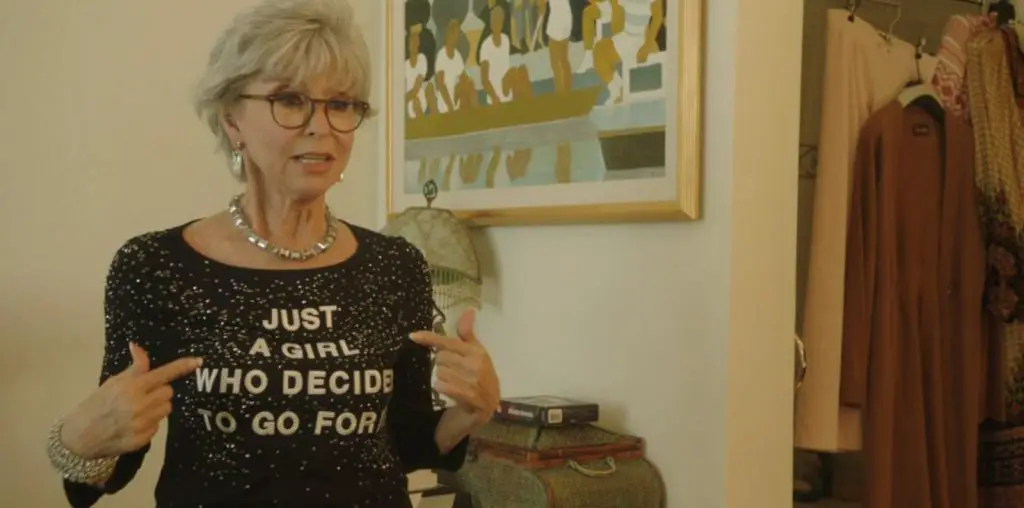
Ray (Spence Decker) seems to have that whole “Beat” thing down. He pounds out his gloomy, nihilistic diatribes in a sparsely furnished, noirish-lit room, decorated with a manual typewriter, stacks of books and crumpled false starts littering the floor. He wears the artsy goatee, rumpled, loose fitting clothes and retro-stylish horn-rimmed geek glasses of a beat-era writer. One smoking cigarette is no sooner out than a replacement dangles from lips pursed in concentration over the typewriter’s hammering keys. Ray can do angst.
Only one thing ruins this carefully crafted image; his loving, wholesome and winsome blond beauty of a girlfriend, Rose (Andie Tecec). It’s only appropriate, then, that when his beautiful Achilles Heel asks Ray to set aside the doom and instead express his feelings for her by writing a simple love poem, it causes him, much to his considerable surprise and consternation, more angst than writing about all the world’s problems combined. Busted when a foolish attempt to plagiarize Lord Byron fails — Japhy (Sy Richardson), the owner of the diner where Rose works recognizes the ripped off sonnet right away — Ray finds himself banished from Rose’s life until he can write her a love poem of her own.
Such is the simple but compelling set-up of Fredrick E. Johnson’s charming short film “beat.” While this is a clever exploitation of America’s continuing fascination with such “beat” writers as Kerouac, Burroughs, and Ginsburg, it thankfully doesn’t de-evolve into a parody piece. Instead, “beat.” uses the movement’s stereotypes as a backdrop against which it can spin a new angle on a vintage theme: speaking from the heart. While Tecec is perfectly cast as the sweet and innocent Rose, Decker appears to be a little too fresh-faced to pass as a hard-living, wise beyond his years writer of that era. Fortunately, his performance makes up for most of that shortcoming and the art design and compelling B&W photography cover the rest of it. Johnson has the good sense not to wuss out and betray the movement’s angst for the sake of a sweet ending. That he manages to pull off just such an ending nonetheless is one last cause for kudos. Everyone snap your fingers.
